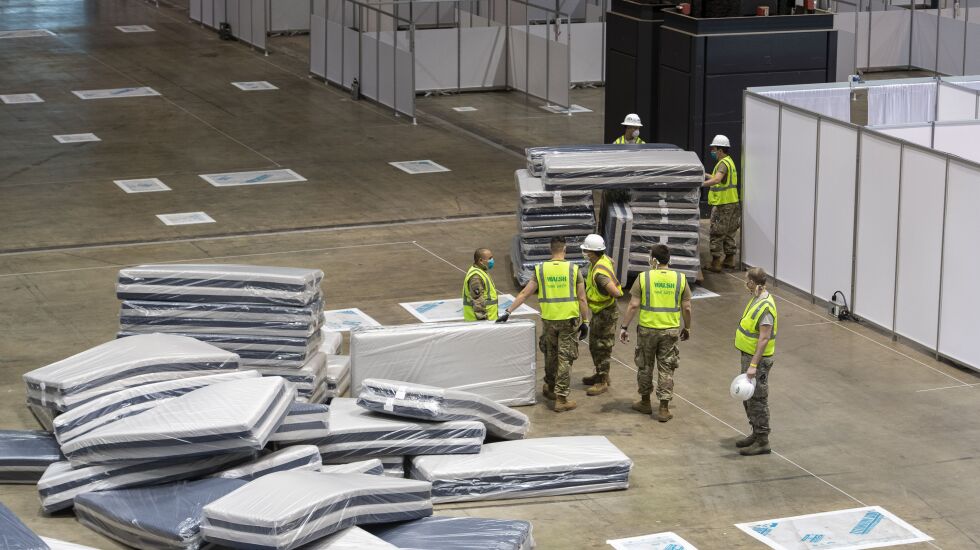
Most of our city leaders have their hearts in the right place when it comes to helping the thousands of migrants, asylum seekers and other Latin Americans who’ve been sent here by Texas Gov. Greg Abbott.
Goodwill and support from local elected leaders is vital, especially when too many are unsympathetic or even hostile, including politicians like Abbott and citizens who seem to have forgotten that our country has always been a nation of immigrants.
But compassion alone can’t solve the humanitarian crisis that left outgoing Mayor Lori Lightfoot administration scrambling to find adequate housing for the migrants who continue to arrive each day.
Issuing an emergency declaration, as Lightfoot did less than a week before leaving office, is a start. Now Brandon Johnson, who will be sworn in as mayor on Monday, has to build on that concern.
That means moving quickly to get $30 million in state funding earmarked for asylum-seekers, which ought to go a long way to help ease the burden of finding shelter and providing other resources for the newcomers.
Johnson’s task is to get the line of communications functioning smoothly. No plan of action will work if communication and coordination with county, state and federal officials are lacking.
Serious discussions between City Hall and Springfield seem to have been nonexistent or weak at best. Consider, for one, that Lightfoot’s office never inquired about 1,125 unused beds that had been set up at the makeshift COVID-19 hospital at McCormick Place.
Plus the city also failed to submit invoices for that $30 million in state funding, the Sun-Times’ Frank Main and Tina Sfondeles reported. It can’t be that hard to fill out the paperwork. Johnson’s team should get their pens ready to finish what was never started.
City officials said using cots at the temporary shelters makes more sense, since cots are less bulky and easier to set up than the larger beds. Fair enough.
Still, the city could have offered up the 126 beds it took from the McCormick Place facility, or asked about the 1,125 beds the state has stored in warehouses, after it was determined the temporary hospital wasn’t needed after all.
Maybe the beds would be impractical in the temporary shelters or at police stations, where migrants have been sleeping on floors. But perhaps good Samaritans, like the businessman in Pilsen who donated vacant commercial space for migrants, could use the beds.
This is no time to drop the ball. The least the city can do, until Washington gets its act together on immigration reform, is to tap the resources that are readily available.
The Sun-Times welcomes letters to the editor and op-eds. Here are our guidelines.







